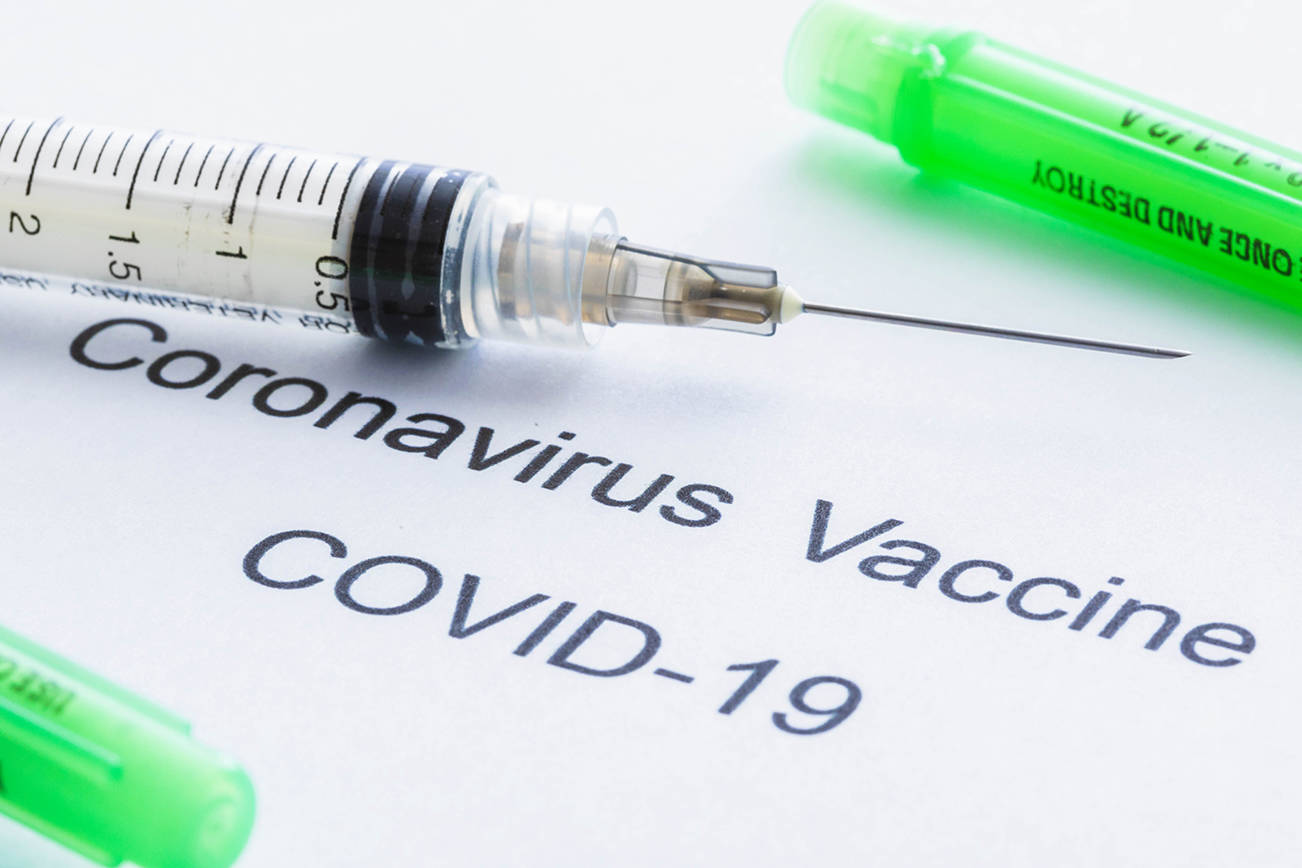Submitted by the Washington State Department of Health
The Washington State Department of Health continues to make progress with our COVID-19 vaccine distribution planning efforts. If everything goes as planned, we expect to have the vaccine delivered early next week in multiple locations across the state.
The federal government has given us an estimate of 62,000 doses of the Pfizer vaccine for our initial allocation – we expect this shipment next week, assuming the U.S. Food and Drug Administration approves the emergency use authorization. An advisory panel voted to recommend approval today. We expect additional allocations for a total of about 222,000 doses of the Pfizer vaccine by the end of December. That’s about 20,000 more than we had originally thought.
More good news: we think we will receive about 183,000 doses of the Moderna vaccine by the end of December as well, assuming the FDA approves the emergency use authorization. Regular weekly shipments should begin in January.
Last week we decided on the first sites that will get the vaccines next week, which includes 17 sites across 13 counties. We will be making the decisions about where the remaining doses will go over the next several days.
In the early days of vaccine distribution, since we’re targeting the vaccine to high-risk workers in healthcare and long-term care facilities, we will only be sharing locations that are getting the vaccine by county and number of doses. As we expand to vaccinating broader groups, we will share more details about where vaccines can be obtained.
Emergency Use Authorizations
Once an Emergency Use Authorization for the Pfizer vaccine is granted, the vaccine will then be vetted by the Scientific Safety Review Workgroup, as part of the Western States Pact. This review should take one to two days and will occur while the vaccine is being processed and delivered, so it should not cause any delay in getting it out.
Last week Moderna submitted its EUA application, which should be reviewed on Dec. 17. Once an EUA is issued, enrolled providers will get special training on the vaccine.
Provider enrollment
To date, Washington state has 189 organizations across the state fully enrolled as COVID-19 vaccine providers. In addition, there are many more applications being reviewed and processed. The majority of enrolled facilities are hospitals and family medicine clinics.
We encourage hospitals, clinics, and pharmacies to enroll right away, even if they don’t anticipate vaccinating in phase 1a. Enroll at bit.ly/2JXnxmh.
Phase 1a vaccine doses
Vaccines in phase 1a will be available for high-risk workers in health care settings, highest-risk first responders, and to residents and staff of long-term care facilities. It will take a number of weeks of vaccination allocation to have enough to vaccinate everyone eligible in phase 1a. As we receive more doses sometime in January, we anticipate being able to reach additional priority groups.
Cold storage
The vaccine candidate made by Pfizer must be stored at ultra-cold temperatures. Fortunately, locations that do not have ultra-cold storage capacity can still store this vaccine in the special thermal shipper the vaccine comes in. This allows additional sites to receive the vaccine as long as they can vaccinate at least 975 people in 20 days. We are also working on a policy that will allow hospitals that don’t expect to vaccinate 975 people to transfer extra vaccines to other enrolled facilities. This will help ensure full use of the vaccine.
Mock shipment
DOH and the Centers for Disease Control and Prevention selected the Snohomish Health District to be the state’s test site for mock vaccine delivery last week. Staff received a box packaged in a way meant to simulate how shipments of vaccine would arrive. The package took less than 24 hours to arrive once shipped. Inside, there was a dry ice pod and an empty box, but staff followed all instructions provided as if vaccine vials were included. The materials were sent back early this week.
Participating in this mock delivery helped Snohomish Health District and DOH better understand the expectations for future deliveries. It will also help DOH provide more informed guidance for ensuring safe handling and storage procedures to our partners in the community.



